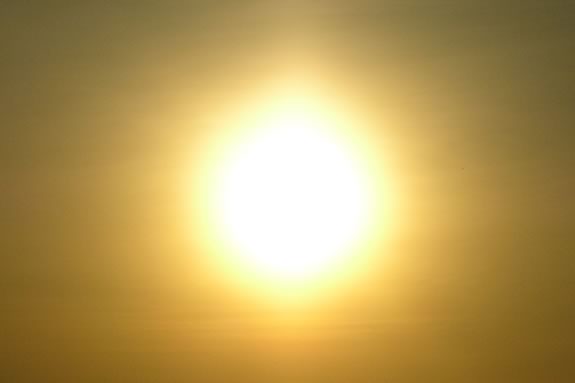
There are all kinds of warnings out there by medical professionals and government agencies telling us that over exposure to the sun is not good, and we would all like to think that we stay diligent throughout the Summer to minimize our chances of sunburn, but it does eventually happen. Best practices dictate that prevention through minimal exposure is best. Avoid mid-afternoon 10am - 2pm for full sun exposure, wear clothing and hats that shade your skin from the sun, protect your eyes with sunglasses that block as much sunlight as possible, and use sun screen products with a minimum SPF 15 (SPF 30 is better) on parts of our skin that are exposed during the day. If your skin starts to look pink, step into the shade.
Burning occurs when you have overexposed your skin to the sun. The CDC says that any discoloration of the normal palor of your skin is a sign that the skin has be damaged - that goes for sunburn, as well as suntan. By the time you notice your skin is turning pink, you should act immediately, as sunburns turn redder after exposure and the burn develops as time passes, even after exposure.
Once you realize you have a burn, here's some tips to sooth the burn:
- Take cool showers and baths. Don't dry completely and try to leave a little moiisture on your skin, followed by a moisturizer to help trap the water in your skin.
- Apply a cool wet towel to the skin. This will keep moisture on the skin and releive the burning sensation. Remoisten and reapply when the twoel gets warm.
- Take aspirin or ibuprofren to help reduce swelling, redness and the pain/discomfort. Using Aceteminiphen will only help with the pain but not adress the other symptoms of sunburn.
- Talk to a doctor before using Cortizone cream, especially on kids.
- Use moisturizer creams to keep your skin soothed. Don't use any kind of cream or moisturizer with a name ending in '-caine' as these products tend to dry the irritated area.
- Minimize exposure of burned skin to the sun. Sunburn denotes that skin is damaged and needs to heal. exposing it to the source of the damage is counterporductive and will only make things worse.
- Stay hydrated. Sunburn dries you out, and you should take extra steps to make sure that you drink exra water to keep from drying out further.
- If blisters form, do not pop them! Allowing blisters to heal naturally will reduce the risk of infection and let your body heal as it should. Blisters are a sign of second degree sunburn, and form as a part of the natural healing process.
Some sunburns are enough to make people physically ill, usually called 'sun poisoning'. Seek medical assistance if your sunburn has any of the following symptoms:
- Fever and Chills
- Facial Swelling
- Blisters Covering a Large Area
- Headache, Confusion or Faintness
When your sunburn and its symptoms are gone, take extra care to protect your healed skin from the sun to avoid more serious conditions inthe future.
Last but not least, some medications may make your skin more susceptable to damage from the sun, so check with your doctor. Some common medications that make skin more sensitive include antibiotics, heart drugs, birth control pills, acne treatments and diuretics.





